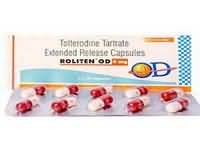Alfentanil

Alfentanil
CLINICAL USE
Opioid analgesic:
Short surgical procedures
Intensive care sedation
DOSE IN NORMAL RENAL FUNCTION
IV injection:
Spontaneous respiration: up to
—
500 micrograms over 30 seconds;
supplemental dose: 250 micrograms
assisted ventilation: 30–50
—
micrograms/kg; supplemental dose:
15 micrograms/kg
By IV infusion with assisted ventilation:
loading dose 50–100 micrograms/kg as
bolus or fast infusion over 10 minutes,
followed by 0.5–1 micrograms/kg/minute.
Discontinue infusion 30 minutes before
anticipated end of surgery
For analgesia and suppression of
respiratory activity during intensive care
with assisted ventilation: by IV infusion
2 mg/hour, adjusted according to response
(usual range 0.5–10 mg/hour)
For more rapid initial control give 5 mg
IV in divided portions over 10 minutes
(slower if hypotension or bradycardia
develops); additional doses of 0.5–1 mg
may be given by IV injection during short
painful procedures
PHARMACOKINETICS
Molecular weight :
453 (as hydrochloride)
%Protein binding :
92
%Excreted unchanged in urine :
0.4
Volume of distribution (L/kg) :
0.4–1
half-life – normal/ESRD (hrs) :
1–2 (average
90 minutes)/
Unchanged
DOSE IN RENAL IMPAIRMENT
GFR (mL/MIN)
20 to 50 : Dose as in normal renal function
10 to 20 : Dose as in normal renal function
<10 :
Dose as in normal renal function
DOSE IN PATIENTS UNDERGOING RENAL REPLACEMENT THERAPIES
CAPD :
Not dialysed. Dose as in normal renal function
HD :
Not dialysed. Dose as in normal renal function
HDF/high flux :
Unknown dialysability. Dose as in
normal renal function
CAV/VVHD :
Not dialysed. Dose as in normal renal function
IMPORTANT DRUG INTERACTIONS
Potentially hazardous interactions with other drugs
Antidepressants: possible CNS excitation
or depression (hypertension or
hypotension) in patients also receiving
MAOIs (including moclobemide) – avoid
concomitant use; possibly increased
sedative effects with tricyclics
Antifungals: metabolism inhibited by
fluconazole and ketoconazole (risk
of prolonged or delayed respiratory
depression); metabolism possibly inhibited
by itraconazole
Antivirals: concentration possibly
increased by ritonavir
Sodium oxybate: enhanced effect of
sodium oxybate – avoid concomitant use
ADMINISTRATION
Reconstition
–
Route
IV bolus, IV infusion
Rate of Administration
See dose
Comments
Alfentanil can be mixed with sodium
chloride 0.9%, glucose 5%, or compound
sodium lactate injection (Hartmann’s
solution) at a concentration of 0.5 mg/
mL, but can be used at 2 mg/mL or even
undiluted at 5 mg/mL.
OTHER INFORMATION
Free fraction of drug is increased in renal
failure, hence dose requirements may be
reduced
IV administration: 500 micrograms
alfentanil has peak effect in 90 seconds,
and provides analgesia for 5–10 minutes
(in unpremedicated adults)
Transient fall in BP and bradycardia may
occur on administration
Analgesic potency = ¼ that of fentanyl
Duration of action = ⅓ that of an equi-
analgesic dose of fentanyl
Onset of action = 4 times more rapid than
an equi-analgesic dose of fentanyl
See how to identify renal failure stages according to GFR calculation
See how to diagnose irreversible renal disease
Home









